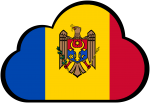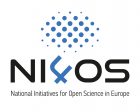
NOSCI Information
- Name: –
- Description: The Moldavian NOSCI is currently being under formation. Through the EOSC vehicle, universities and research institutes will be able to apply Open Science (OS) practices and FAIR principles. Researchers and innovators will be able to use e-Infrastructures and OS related services. It will be the main driver for the country to coordinate all national efforts and form OS legislation and relevant regulation documents. The advent of OS will also accelerate Citizen Science research, and open access to publications. The Moldavian NOSCI will be a decisive factor for the change of culture, by promoting of national synergies and liaison with the EOSC.
- The main objectives of the initiative are:
- To develop the national initiatives for open data, open science services, cloud and data infrastructures towards achieving the overall EOSC vision
- To facilitate the compliance with EOSC standards of the related national OS initiatives and national research programmes
- To promotion of FAIR practices and EOSC services
- Website: –
- Date of establishment: November/December 2021 (est.)
- Set-up workflow: Hybrid
- Governance structure: Consortium
- Members: Universities, research institutes and service providers form the main body of the NOSCI consortium. The initiative has the support of the Ministry of Education, Culture and Research.
- Related documents: –
- NI4OS-Europe contact points: The Research and Educational Networking Association of Moldova, RENAM
Open Science Profile
Code on Science and Innovation of the Republic of Moldova, approved in 2004, with amendments in 2018 (No. 259 of 15.07.2004) ensures free and non-discriminatory access to scientific and technological information resources (Articles 54, 57, 79 and 85).
The R&D strategy of the Republic of Moldova (until 2024) includes the development of human, institutional and infrastructure capacities – national R&D infrastructure by 2020, connecting the infrastructure of research local innovation in European networks. It also promotes transparent engagement of citizens and civil society in the development of research topics by facilitating access to scientific knowledge (General Objective 4 – Continuous Dialogue between science and society, the dissemination of knowledge and the implementation in practice of research results). All specific programmes of the national funding framework should include a dissemination component, including free access to research results of end-users, citizens, business, civil society organizations and policy makers.
Moldova is a member of ERAC Standing Working Group on Open Science and Innovation and in 2016 the Council of Europe asked the Working Group to evaluate the actions proposed in the Amsterdam Call for Actions on Open Science in terms of feasibility, effectiveness and prioritization. Moldova contributed to the report with the national perspective and identified the following priorities for Open Science, Open Innovation and cross-cutting issues: covering Open Science costs, open access to research data, stimulating the creation of innovative research-business networks /platforms, assessing the impact of Open Innovation, assessing the social relevance of research, harmonizing national e-infrastructures, protecting personal data vs. Open Access, and Intellectual Property Rights vs. Open Access.
The National Strategy for the Development of the Digital Moldova Information Society 2020 includes the Programme on the creation, development and capitalization of digital content: digital data centers / repositories for local content), development of open data portal, digitization of cultural and scientific heritage and providing access to it.
The Declaration on Open Science in the Republic of Moldova was approved in 2018.
There are 11 institutional Open Access policies and all of them include Creative Commons Attribution (CC BY) license.
Improving access to research data requires institutional policies, but also commitment of researchers. A culture of research data sharing still needs to be developed as well as infrastructure for storing and sharing research data.
EOSC Collaboration
- Mandated organisation: Information Society Development Institute (IDSI)
- Observer: –
- Member: National Agency for Research and Development (NARD)
- Participation in EOSC pillars:
- OpenAIRE: –
- NGI: Petru Bogatencov and Nicolai Iliuha both from RENAM
- RDA: –
- GEANT: Petru Bogatencov and Grigore Secrieru both from RENAM
EOSC PROMOTER PROFILE
Every partner country is represented by at least one EOSC Promoter. Click the button below to check out their profile.
VISIT PROFILE